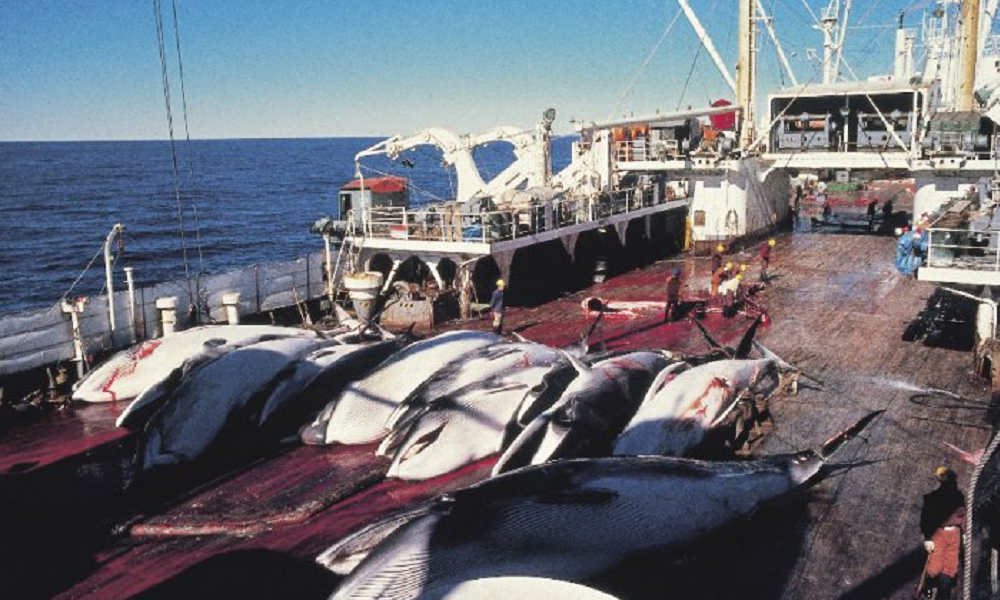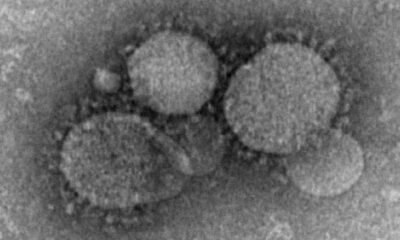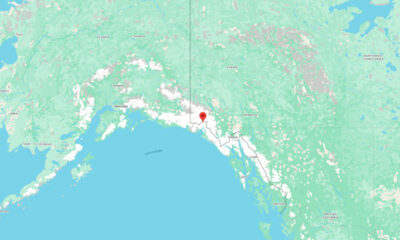Breaking News
Japan to resume commercial whaling in July

Japan will resume commercial whaling, a practice it officially ended more than 3 decades ago, and withdraw from the International Whaling Commission, officials say. It’s expected to draw criticism from the international community.
The government confirmed on Wednesday that it will leave the International Whaling Commission (IWC) on June 30, ending weeks of speculation. Hunting will be allowed in waters near Japan and within the country’s exclusive economic zone.
Commercial whaling has been banned by IWC since 1986, but Japan has long lobbied for the restrictions to be eased. A proposal to allow the commercial hunt of minke whales and other species which Japan believes are ‘relatively abundant’ was recently rejected.
Japan currently uses a scientific exemption to kill hundreds of whales a year, but critics have condemned it as a cover for commercial whaling, noting that meat from the annual hunt often ends up being sold.
Japan killed at least 488 whales off its coast, in the Antarctic and the Northwest Pacific during the annual hunt that ended in 2017, according to IWC. This includes 372 minke whales, 26 Bryde’s whales, and 90 sei whales.
“With this move the Japanese government is officially turning its back on international cooperation around conservation measures, and one of the greatest conservation agreements ever made – the ban on commercial whaling,” said Astrid Fuchs of Whale and Dolphin Conservation (WDC).
“It is possible other countries will follow Japan’s example and resume commercial whaling in their coastal waters,” she said. “This is devastating news for the whales and we can only hope that conservation-minded countries like the UK will take appropriate measures to respond to Japan’s decision, including the threat of sanctions.”
Fuchs said whales are already facing a multitude of man-made threats, including climate change, overfishing, pollution and habitat loss. “Whale hunts are cruel and whale populations are far from being safe,” she said.
Greenpeace condemned the decision as well as its timing. “It’s clear that the government is trying to sneak in this announcement at the end of year, away from the spotlight of international media,” said Sam Annesley, the Executive Director at Greenpeace Japan.
The decision has drawn a mixed response at home. Whaling communities and those who work in the industry have welcomed the resumption of commercial hunts, but others have expressed concern about whales and the expected damage to Japan’s reputation.
“Whale meat is tasty, but I wonder if we need to increase the volume of catches even at the cost of being isolated internationally,” a 41-year-old customer at a whale meat restaurant in Tokyo told the Kyodo news agency.
A number of other countries are also hunting for whales.
Norway killed 591 minke whales in 2016 and Iceland killed 46, using an objection or reservation to the 1986 moratorium on commercial whaling. Additionally, native peoples in the U.S., Russia, and Denmark are allowed to hunt a limited number of whales to meet nutritional and cultural needs, even though the meat is sometimes sold to tourists.

-

 Health5 days ago
Health5 days agoFrance confirms 2 MERS coronavirus cases in returning travelers
-

 Health7 days ago
Health7 days ago8 kittens die of H5N1 bird flu in the Netherlands
-

 Entertainment5 days ago
Entertainment5 days agoJoey Valence & Brae criticize DHS over unauthorized use of their music
-

 Legal1 week ago
Legal1 week ago15 people shot, 4 killed, at birthday party in Stockton, California
-

 US News7 days ago
US News7 days agoFire breaks out at Raleigh Convention Center in North Carolina
-

 US News2 days ago
US News2 days agoMagnitude 7.0 earthquake strikes near Alaska–Canada border
-

 Legal4 days ago
Legal4 days agoWoman detained after firing gun outside Los Angeles County Museum of Art
-

 Health6 days ago
Health6 days agoEthiopia reports new case in Marburg virus outbreak




